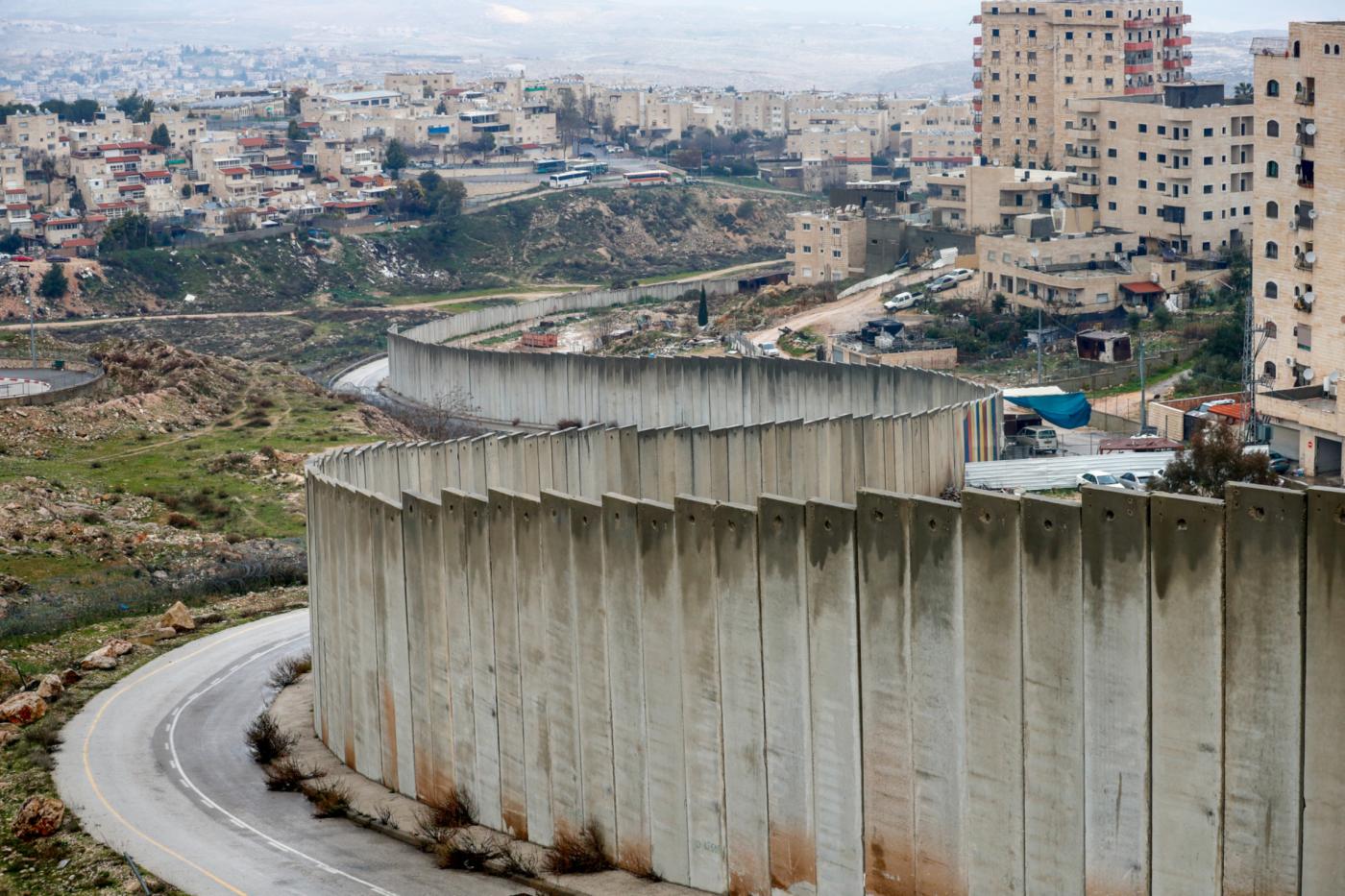Israel has 'hemmed in' its Palestinian citizens for decades: HRW

A new report finds that Israel's land practices have allowed Jewish communities to thrive at the expense of Palestinian development
Human Rights Watch (HRW) has released a new report highlighting Israel’s discriminatory land policies against its Palestinian citizens, calling attention to decades worth of practices that have inhibited the growth of Palestinian communities, while letting Jewish communities flourish.
The report, “Israel: Discriminatory Land Policies Hem in Palestinians", details how Israel’s preferential planning and zoning policies extend far beyond the occupied West Bank and East Jerusalem, where building discrimination in the form of home demolitions and lack of permits for Palestinians is well documented.
Since Israel was established, the state has been working to restrict Palestinians, who account for more than 20 percent of Israel’s population, to their existing, overcrowded communities, while maximising the land available for its Jewish citizens.
Despite constituting one-fifth of the population, data indicates that less than three percent of all land in Israel falls under the jurisdiction of Palestinian municipalities, while the Israeli state directly controls 93 percent of the country’s land.
Since 1948, Israel has authorised the creation of some 900 Jewish communities, yet no authorisations were given for the establishment of new Palestinian towns or cities, despite massive overcrowding in their existing communities.
The international rights group, headquartered in New York, noted that in the first five years of its statehood, the majority of new Jewish communities founded inside Israel were built on land confiscated from Palestinians – 350 out of 370 in total.
As for the people in charge of allocating state lands for residential and other uses, almost half of the governing body of the Israel Land Authority (ILA) belong to the Jewish National Fund (JNF), “whose explicit mandate is to develop and lease land for Jews and not any other segment of the population,” HRW said.
“The fund owns 13 percent of Israel’s land, which the state is mandated to use ‘for the purpose of settling Jews’.”
Nowhere to grow
On top of the fact that no new Palestinian towns have been established in more than 70 years, the existing Palestinian communities have been “hemmed” in by a number of restrictions on their expansion.
“Even within the limited territory that Palestine municipalities currently have, the Israeli government often makes it difficult for Palestinian citizens to build homes,” Omar Shakir, the Israel and Palestine director at HRW, told Middle East Eye.
“They have designated large sections of many municipalities as green areas or zoned it for agricultural use or built state infrastructure projects, all of which include restrictions on building homes in those areas,” Shakir said.
In Jisr al-Zarqa, an ancient fishing village highlighted in the report, is the last remaining Palestinian town on Israel’s Mediterranean coast and is also one of the poorest communities in Israel, with more than 80 percent of residents living below the poverty line.
Over the years, Israel has boxed in the residents of the town. It is now surrounded on its north by a Jewish Kibbutz and nature reserve, to its east by a highway that separates the town from agricultural lands that used to belong to residents, and to the south by the elite Jewish town of Caesarea, which was built on the remains of the Palestinian village of Qisarya, whose residents were expelled in 1948.
Even on its western side, the Mediterranean Sea, villagers are restricted to building within 100 metres of the coast.
The result of these discriminatory policies has devastated Jisr al-Zarqa, “which has no industrial zone, emergency health services, post office, bank, or bank-operated ATM machine, and few public or recreational sites or facilities,” HRW said.
Data from Haifa-based rights group Mossawa indicates that less than a quarter of the town’s students graduate high school, while the life expectancy of Jisr al-Zarqa residents is 20 years below the national average.
Unable to jump over the hurdles placed in front of them by the Israeli government, many Palestinian citizens of Israel are forced to build their homes without permits, resulting in widespread demolition orders across Palestinian communities, much like in East Jerusalem and Area C of the West Bank.
Shakir pointed to data found by The Arab Center for Alternative Planning, which estimates that 15 to 20 percent of the homes in Palestinian communities in Israel lack permits. Moreover, about 60-70,000 homes in Israel, excluding Jerusalem, are at risk of demolition.
“As of July 2015, 97 percent of the demolition orders in effect across Israel were in Palestinian communities,” Shakir said.
If Palestinians do choose to leave their hometowns and seek residence in other parts of Israel, they face a number of racially-charged obstacles, among them an Israeli law that permits small Jewish towns in certain areas to maintain admissions committees that can block people from living there for incompatibility with its “social-cultural fabric.”
According to a 2015 study from a professor at the Technion - Israel Institute of Technology in Haifa, there are more than 900 small Jewish towns across Israel that can impose such restrictions, and have no Palestinian citizens living in them.
“Discrimination faced by Palestinian citizens of Israel is not the result of discrete or isolated acts, but rather an entrenched policy that dates back to the early days of the state,” Shakir told MEE.
“Israeli policy dating back decades has sought to engineer a Jewish majority and maintain Jewish Israeli control over land”, he said, adding that Israeli officials publicly refer to Palestinians as a demographic threat.
“It's clear that tackling discriminatory Israeli rule cannot focus alone on the situation in the West Bank and Gaza, but must include the systemic and institutional discrimination faced by Palestinian citizens [of Israel].”
Source: Middle East Eye

WRITE YOUR COMMENT